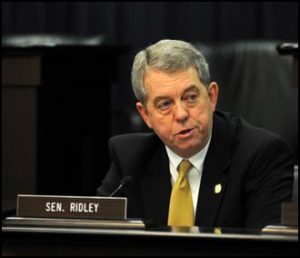By Dorsey Ridley
Click here to view the full article
While I appreciate the Governor’s efforts to address Kentucky’s pension challenges, I fear the proposals would only enhance our problems further. Kentucky’s public pensions face very real challenges, but imploding the pension systems that provide benefits promised, and legally protected, to our current and retired public employees — city, county, state, teachers and other school staff — is not the way to solve the crisis.
Some Philadelphia consultants hired at $556,300 and paid nearly $1.2 million in Kentucky taxpayer money (You literally cannot make this stuff up.) recently recommended switching most public employees to a 401(k)-type retirement plan as a way to “save” public pensions.
It’s as if anti-pension ideologues are using the smoke screen of a “crisis” to get rid what they’ve long sought – the dismantling of public pensions in Kentucky. Pensions aren’t the enemy. It is the retirement plan 14 percent of Kentuckians depend on, according to The Lexington-Herald Leader.

Dorsey Ridley
The average pension benefit in Kentucky is $1,983 a month, or $23,791 per year, according to the National Institute on Retirement Security. A less secure retirement from a 401(k)-type retirement plan would cause an increase in public welfare spending as more workers retire into poverty. Pensions also support local economies and help Kentucky communities thrive. The institute found that each $1 paid out in pension benefits supports $1.43 in total economic activates in communities like Henderson.
Shifting public employees to a 401(k)-type retirement plan would not reduce the liabilities but will make the funding challenge worse, according to a report by the Kentucky Center for Economic Policy. It would also undermine the Commonwealth’s ability to attract a skilled workforce and would weaken local economies. Kentucky public employees already make less in total compensation than comparable workers do in the private sector, according to the report.
A switch to 401(k)-type retirement plans would close the existing pension plans to new members, which would lower investment returns on the existing plans’ assets over time, according to the report. That would increase the costs to pay down the unfunded liabilities – exactly the opposite of the goal I thought we were trying to achieve.
One needs to look no further than the states that have closed their pension systems to learn of the costly ramifications that follow. In 1997, the Michigan State Employees’ Retirement System pension plan was closed and new hires were placed in a 401(k)-type retirement plan, like the one those Philadelphia consultants recommended for Kentucky. At the time of the closure, the pension was funded at 109 percent, according to the National Public Pension Coalition. With no new employees paying into the pension and an aging demographic, plan costs soared and the funding level dropped. By 2012, the plan was severely underfunded at 60.3 percent, according to the coalition. After 20 years under the 401(k)-type retirement plan, the state’s Office of Retirement Services found that the median balance in these accounts was just $37,260.
While Michigan continues to suffer the consequences of the pension plan’s closure, other states have realized the error of their ways and taken steps to reinstate closed plans. In 2005, West Virginia reopened its pension system for teachers after closing the plan in an attempt to improve funding levels in the early ‘90s, according to the coalition. In less than a decade after the reopening, funding levels more than doubled and teachers now enjoy access to a secure, dignified retirement.
Coming from a family of teachers, I have always been an avid supporter of public employees. I will actively oppose any change in public pensions that violates what the Kentucky Supreme Court has ruled to be an irrevocable contract.
Governor Bevin has promised that he is going to call us into a special session to address the pension issue. Thus far, I have not seen a proposal from the Governor or the Republican leadership, but be assured, I will keep you up-to-date on any developments.
We will return to Frankfort January 2, 2018 for the budget session. I encourage you to stay in touch to share your input on the issues facing our Commonwealth. You may leave me a message by calling the toll-free Legislative Message Line at 800-372-7181. You can also e-mail me directly at Dorsey.Ridley@LRC.KY.GOV.
Dorsey Ridley is a Senator from the District 4 that includes Caldwell, Crittenden, Henderson, Livingston, Union and Webster counties. He is Minority Caucus Chair.